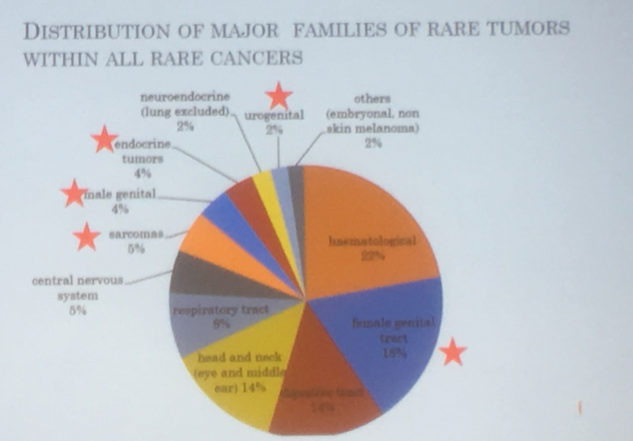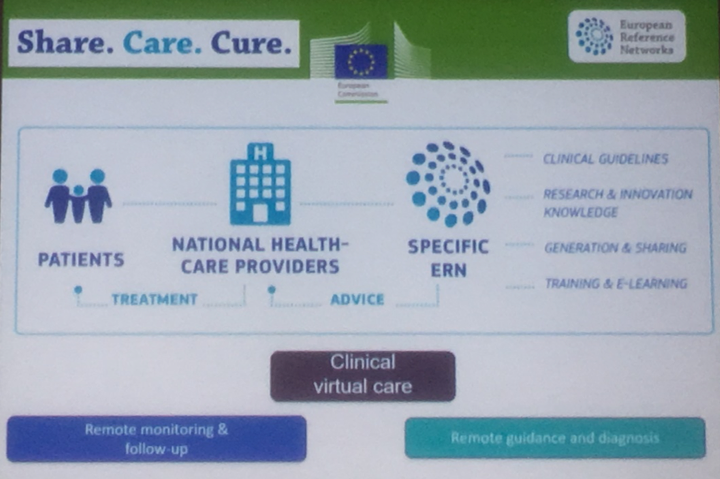Washington, DC (UroToday.com) Following a number of presentations on penile cancer and the InPACT trial at the 20th Annual Meeting of the Society of Urologic Oncology, Dr. Vijay Sangar presented on the eUROGEN referral network. While encompassing penile cancer, this is a broader concept to provide guidance in the diagnosis and management for rare and complex urogenital conditions in Europe.
He began his talk defining a rare cancer as one which afflicts fewer than 1 in 2000 individuals. In the European Union, there are 198 such cancers registered. Thus, despite their individual rarity, together these diseases affect over 500,000 people per year in the European Union and comprise 22% of all cancers diagnosed. Among identified rare tumors, urologists are important in the evaluation and management of many, as shown below.
Additionally, rare cancers tend to have worse survival than more common cancers. This may be due to underlying biology but may also reflect differences in management, due in part to physicians' relative lack of knowledge or familiarity with the disease.
Thus, the challenge in rare cancers, as Dr. Sangar presented it, is multi-fold:
- Delays in diagnosis
- Variable access to therapy
- Variable outcomes
- Variable quality
- Variable patient experience
- Limited clinical studies
- Poor interest in developing new therapies
- Few registries
He then provided a historical context: in the region of England where he practices, there were 124 cases of penile cancer diagnosed between 1999 to 2005, managed by 34 physicians in 17 hospitals. As a result, nearly all patients were treated by very low volume physicians. In contrast, in 2019, there is now a single center for the region with 3 urologists and a supporting dedicated team of clinical oncologists, nurse specialists and psycho-oncologists who treated 180 patients in the past year.
He then outlined the structure of the eUROGEN which facilitated such centralization.
As a result of this integrated structure, the eUROGEN seeks to deliver:
- Quicker specialist evaluation
- More equitable access to high quality diagnosis
- Highly specialized assessment and surgery.
This approach is overseen, and facilitated, by a strategic board, under which there are a number of workstreams with differing clinical expertise.
In order to participate in this program, a center must demonstrate sufficient volume in each of a number of tumor sites.
In addition to clinical care, this structure has facilitated multi-institutional research collaboration and trials.
Presented by: Vijay K. Sangar, MD, The Christie NHS Foundation Trust, Manchester, United Kingdom.
Written by: Christopher J.D. Wallis, MD, PhD, FRCSC Twitter: @WallisCJD at the 20th Annual Meeting of the Society of Urologic Oncology (SUO), December 4 - 6, 2019, Washington, DC

